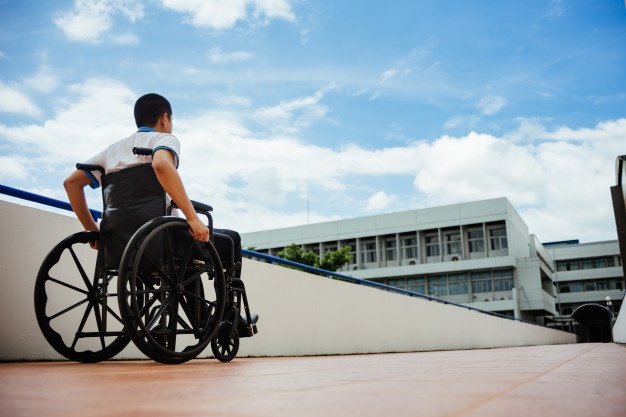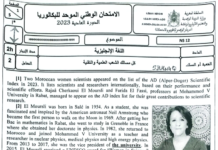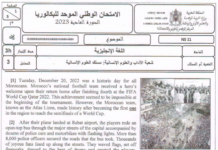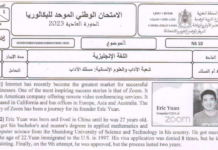The exam’s Comprehension Text
Latifa became a disabled person due to a serious illness that caused her paralysis in her early childhood. When she was nineteen years old, she lived in a remote village in the Rif Mountains. As one of six children in a poor family of a labourer, she got married at the age of 16. At that time, she was hardly able to walk by herself. However, this marriage could not last for long. Very soon, Latifa’s husband and his parents abandoned her, blaming her for her physical handicap. Later, her husband divorced her and got married again. With a sense of rejection and despair, she went back to her parents’ home.
When her village was selected for a women literacy project, Latifa got in contact with the teachers in this project. When they talked to her and to some women in the village, she immediately joined literacy classes. This changed her life completely. Guidance, care, and affection of the teachers helped build her personality. She emerged as a leader of girls, helping them to study and come out of their isolation for a new life.
Later on, Latifa, who had to use a wheelchair to move, joined a programme organised by the Ministry of Youth and Sport for the benefit of the disabled. She learnt traditional embroidery in a two-month training programme, and began earning money from making tablecloths and napkins. Latifa became the breadwinner in her family.
Latifa took the initiative and set up an association of young boys and girls of her village. When drought hit the village and water became scarce, she wrote letters to German non-governmental organisations asking them for help. She cannot forget the day when a caravan of cars and trucks arrived in the village. She was cheered by the villagers when water started to pour out of a fountain designed by a German engineer.
One could see Latifa in her struggle for social justice, leading a group of young people with a sense of confidence in her voice and gestures. She stood up against arranged marriages in rural areas around the village and persuaded parents to send their children to school. She still walks with difficulty, but the confidence of her voice helps her overcome her physical handicap. For her, life has just begun. From a lonely, fragile figure, Latifa is now a good educator and a role model. When people ask her how her life has changed, she points with a smile of gratitude to her old classroom in the farthest corner of her village.
National exam | Humanities Stream | Catch-up Session 2010 with Answers





